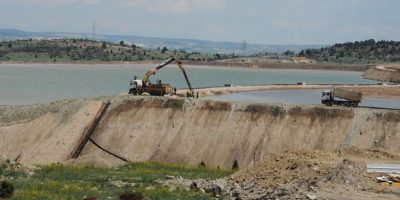 Better insulation and passive building techniques could go a long way to reducing energy demand
Better insulation and passive building techniques could go a long way to reducing energy demand
An outsider would think that Egypt is roiling is soot and rooting around in the dark as the annual black cloud season begins and blackouts continue to wrack the nation. And they would be close to correct. In order to back track its energy policy, at least, Egypt has announced plans to lift industrial energy subsidies and press forward with its renewable energy plan. But the people on the street aren’t willing to wait until 2019 for a decent energy supply. Armed with a bundle of scathing statistics, Yahia Shawkat goes to town on Egypt’s poor management.
MoEE
Siting statistics from the Ministry of Electricity and Energy (MoEE), Mr. Shawkat wonders why energy ouput, which has increased by 5.4 billion kw/h since 2007, a 5% increase in energy production, has failed so miserably against a 3.1% growth in per capita output.
To answer this question, she looks to energy expert Emad Hassan, who claims that management has failed to adequately project energy demand.
“Each demand sector could be offered different options to alter its energy consuming behavior,” Hassan told Shawkat. “From proper pricing signals to economic incentives and mandatory regulations, there is a wide range of policies and market approaches that could lead to demand side efficiency.”
Low per capita consumption
Egyptians consume an average of 1400kw/h per capita, which is precious little compared to Americans, who according to Shawkat, consumer 90% more energy.
The biggest consumers in Egypt are industry and homes, at 33.4% and 39.2% respectively. Shawkat seems to suggest that reducing consumption in these sectors would lighten energy demand. And doing that would not be so difficult.
The rice straw that agriculturalists burn off during rice harvest, as a result of inadequate disposal or recycling facilities, that contributes to Cairo’s hovering black smog could be used to insulate otherwise poorly insulated buildings.
Natural light
This could amount to a 9% savings or 15% savings during peak demand, according to Homeenergy.org.
And while the government does encourage energy efficient light bulbs, which reduces energy use by 9-18%, passive construction that optimizes natural lighting could reduce loads by 10-20%, according to Whole Building Design Guide. Just those two measures alone, when combined, could save 38% energy, thereby significantly reducing demand.
Dr. George Bassily of the Housing and Building National Research Center confirmed that a pilot project by the Ministry of Agriculture demonstrated that 30% savings were in reach.
Since smarter building codes are in place, failures in Egypt should be attributed to poor management and lack of enforcement.
:: image via archer10 (Dennis) and story via Al MasryAlyoum
More Business and Politics:
The Romans Would Be Proud of Jordanian-Greek Wind Farm Outside Jerash
Israel’s Polluters Face New OECD Rules
Will Israel’s Undersea Gas Pipeline Idea Increase the Mediterranean’s Already Polluted State?



